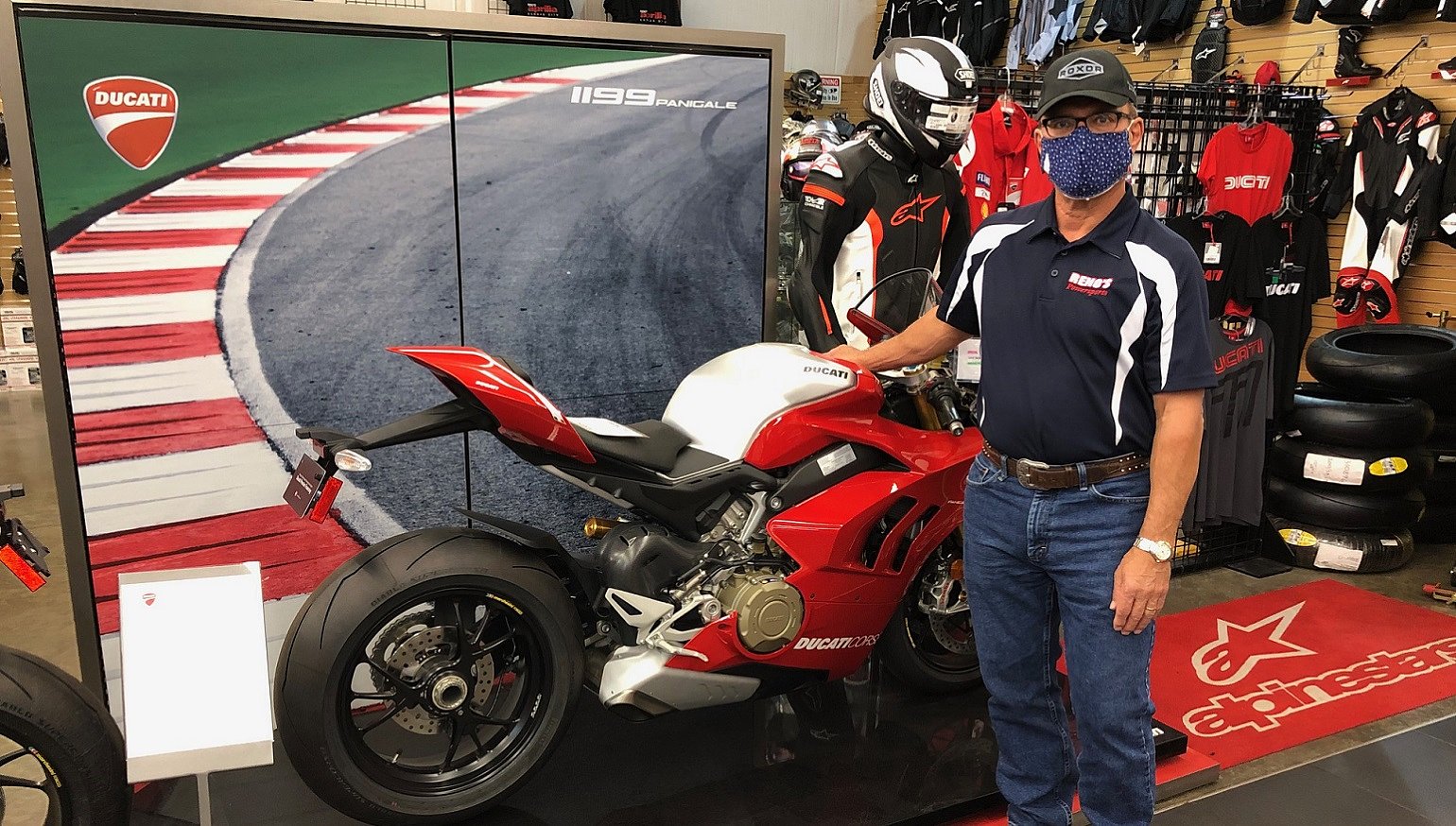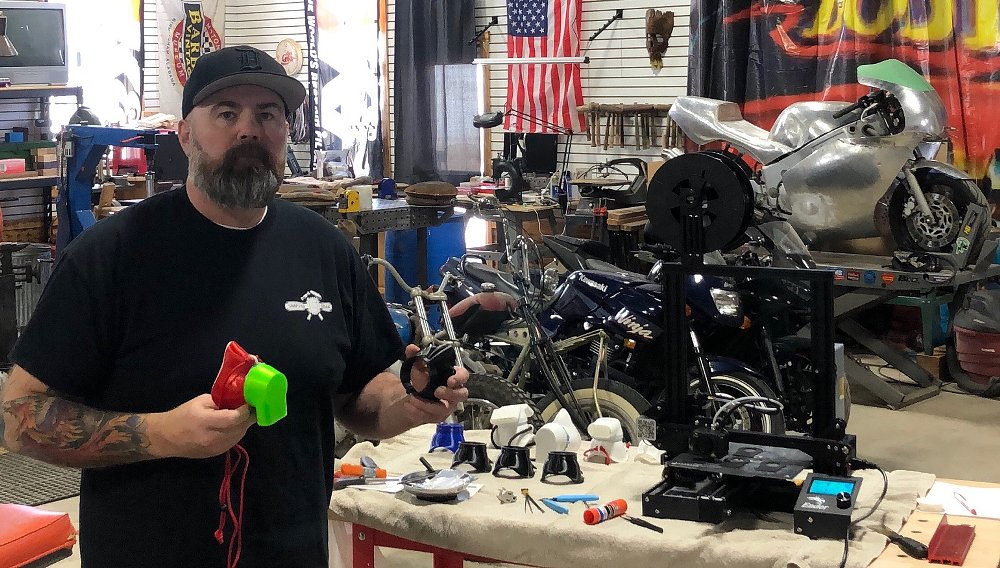Until the middle of March, most U.S. businesses, including motorcycle dealerships, were operating normally. Then social distancing became the norm, public events were canceled and many companies sent employees home. In a matter of days, dealers saw a promising spring selling season become the worst one since Pearl Harbor.
Harley-Davidson recently reported that more than half of its dealers were closed at the end of the first quarter. Another manufacturer's press guy I spoke to said about half of his company's dealers also closed their showrooms.
Several manufacturers have created platforms to allow customers to buy a new motorcycle online and have it delivered by a local dealer, in locations where that isn't prohibited by state laws. That's just the beginning of the changes dealers have made to deal with the COVID-19 pandemic.
Here's my unscientific survey of how several motorcycle dealerships across the country are adapting.
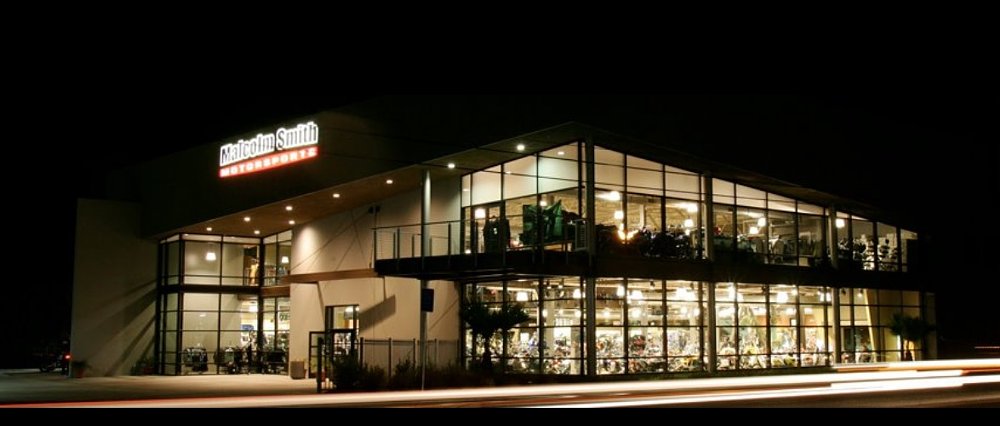
Riverside, California
“When this first started I was down in Mexico leading one of our tours, so I was getting information secondhand,” Alexander Smith told me. He runs Malcolm Smith Motorsports in Riverside, California. “While I was down there, we closed for five days, until I got back and could get a handle on things.”
Before leaving on that trip, Alexander told his staff that come what may, no one would be laid off or have their pay cut. So, that brief closure didn’t hurt his employees. The way he read the rules, his service and parts departments were "essential," so there was no problem keeping them open — although the dealership reduced operations from 10 hours per day, seven days per week, to nine hours per day for five days per week.
Smith stationed a staffer at each entrance with hand sanitizer and masks, which are used by both staff and customers when inside. He put tape on the floor in places where a queue might form, to remind people what six feet looks like. Then a crazy thing happened. Business kind of boomed.
“Minibike sales are extremely strong. I think that goes back to kids being out of school,” he told me. “And, every other category is strong.”
When all was said and done, Malcolm Smith Motorsports actually had a better April this year than it did last year.
That’s not to say the future’s completely rosy in Riverside. Smith foresees some supply chain problems and he worries about getting inventory to replace what he’s sold, especially on products that are assembled in North America.
Milwaukee
“Products assembled in North America” is most of the inventory at Milwaukee Harley-Davidson, where I spoke to General Manager Goran Zadrima. For the time being, the shop’s closed on Mondays and opening hours have been restricted a little, too.
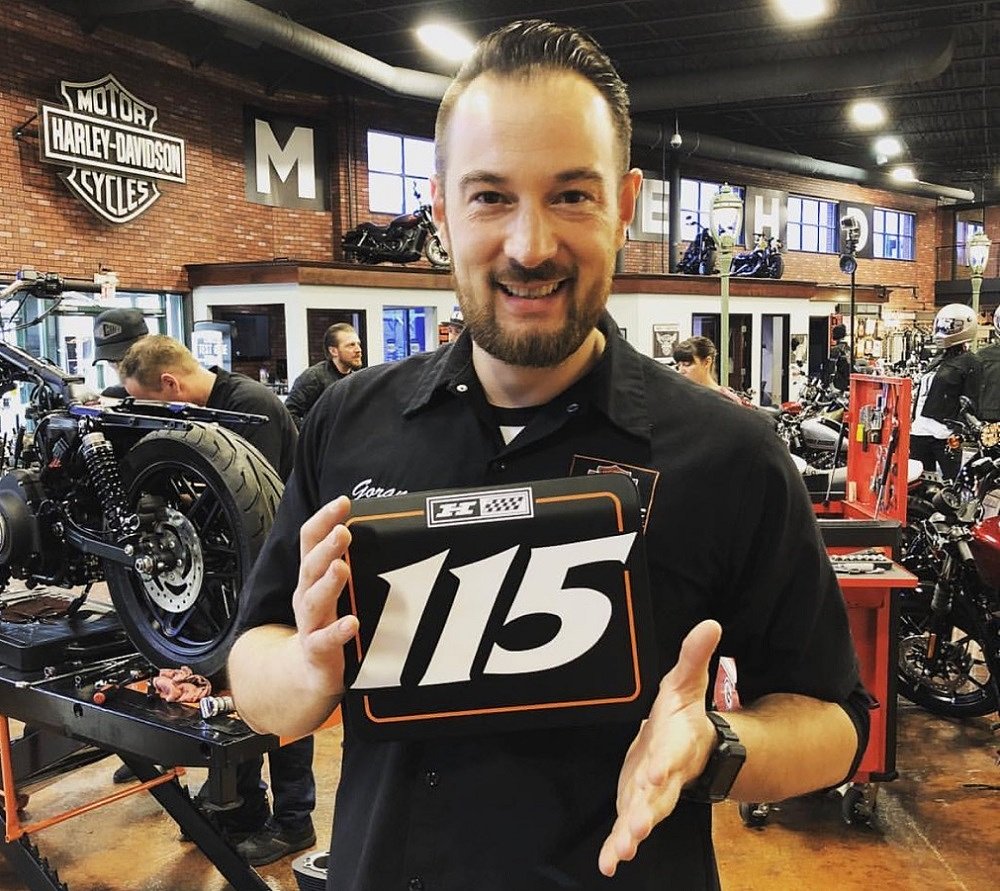
Milwaukee Harley-Davidson’s website’s getting a ton of hits, too. “Our phone traffic, our internet traffic, I’m not kidding you,” he said. “Yesterday we had 33 internet leads.”
Zadrima has thought about limiting the number of customers in the store, although he doesn’t feel that he’s reached the threshold for crowding so far. The space is large and workers make three cleaning passes through the store every day. Staff is free to wear masks if they want to do so, but he said most do not. A few customers have requested curbside pickup for parts and accessories. He’s happy to oblige them, but they’re in the minority.
The shop has a winter storage program and keeps up to 400 customer bikes over the winter. They’ve been delivering a lot of those bikes, at customers’ request, but they’ve also told customers who wish to leave their bikes in storage until the stay-at-home orders are lifted that they are welcome to do so.
Zadrima’s brought back most of the staff who were initially furloughed, although the shop’s still not quite at its full roster. “Service is crazy, parts is crazy,” he told me. “Sales are so-so. MotorClothes has probably been hurt the most.”
“I’ll tell you this,” he said. “Having the short crew and this much traffic, we have been working our butts off. You can see people doing multiple jobs to make sure the customers are taken care of. I’m properly tired at the end of the day, but it’s a good tired.”
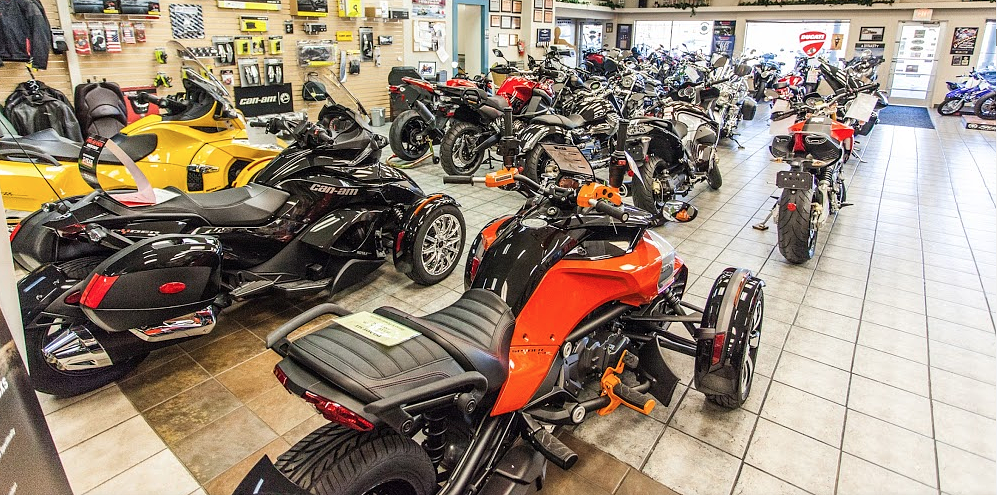
Kansas City
My next call was to Steve Okenfuss, who owns Reno’s Powersports in my adopted home town of Kansas City.
KCMO has a progressive mayor who called for social distancing long before the state of Missouri took action. (As a result, the city had a very small first wave of infections.) But Reno’s Powersports took steps even before the mayor issued his first directive.
“It was a fluid situation," Okenfuss said. "Remember, when this started, they were saying that millions of people were going to die. It was a ‘Chicken Little’ situation and the press was amplifying those fears. So when all of that was happening, we’d already closed the store to outsiders. We haven’t had a customer inside the building for about eight weeks.” Employees practice social distancing amongst themselves, too.
But while the building’s been closed, the dealership’s managed to stay open for business. “We provide curbside service only. So if you want to buy a battery, you call and say, ‘I want to buy a battery for my 2016 MT-09,’ you can pay for it over the phone and we’ll bring the part out and set it at a pickup area, get your receipt and go.”
They sell new motorcycles in much the same way. Okenfuss told me that he was glad this all went down in a season where demand’s always strong. He also feels that his customers, facing what might be an entire summer of social distancing, are considering a new motorcycle, ATV, or watercraft to alleviate boredom.
“I think that offsets some of the problems of high unemployment,” he speculated. “We haven’t seen significant declines, or increases, in any one area. Curbside service is a much more cumbersome way of doing business, but our service business has been dependable throughout.”
“For two or two and a half weeks, when the fear of the pandemic was at its peak, we sent most of our staff home to shelter in place and just kept a skeleton crew of managers in the shop, but we kept everyone on the payroll the whole time. As things settled down, we brought them back,” Okenfuss told me. “If I send a parts guy home, he’s still going to be going out to buy groceries. My people are probably safer spending their days in here.”
Reno’s is getting ready for the day when customers will be allowed back into the building. Steve might make a rule that all staff and customers must wear masks when in the dealership, but he hasn’t come to a final decision on that yet.
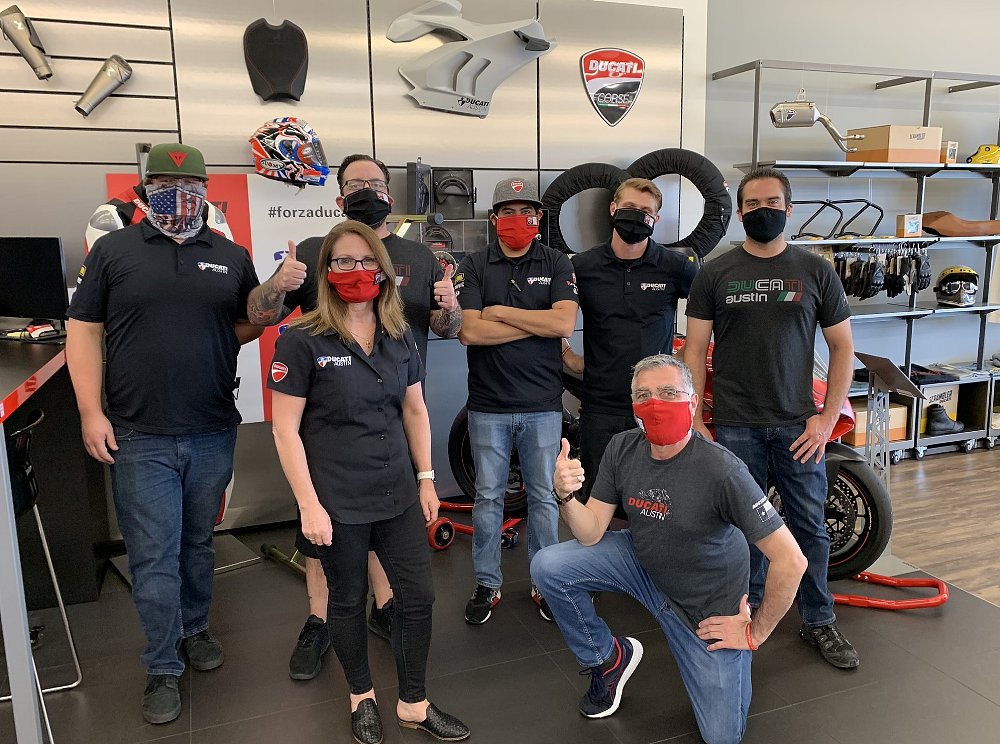
Austin, Texas
Texas was among the first states to begin loosening social distancing rules, but individual counties have a lot of authority to regulate commercial activity. Ducati Austin is in Travis County, where they’re still exercising a little more caution. As a result, Ducati Austin’s showroom is technically open, but by appointment only, in order to ensure that no more than four customers are inside at any one time.
“Our staff wear masks, and we insist that customers wear them, too,” said Cathy Dionisio. “If customers don’t have a mask, we’ll issue them with a disposable mask at the door. We’ve put lines on the floor in front of the parts and service counters, to keep customers and staff at least six feet apart.”
Ducati Austin has managed to adapt its business to changing rules without closing or furloughing staff. The shop keeps its service techs busy by picking up and dropping off bikes for customers who would rather not come into the dealership.
Dionisio said that April numbers were down, but that the cancelation of the MotoGP round at the Circuit of the Americas — which traditionally kicks off the shop’s spring season — may have hurt as much as social distancing.
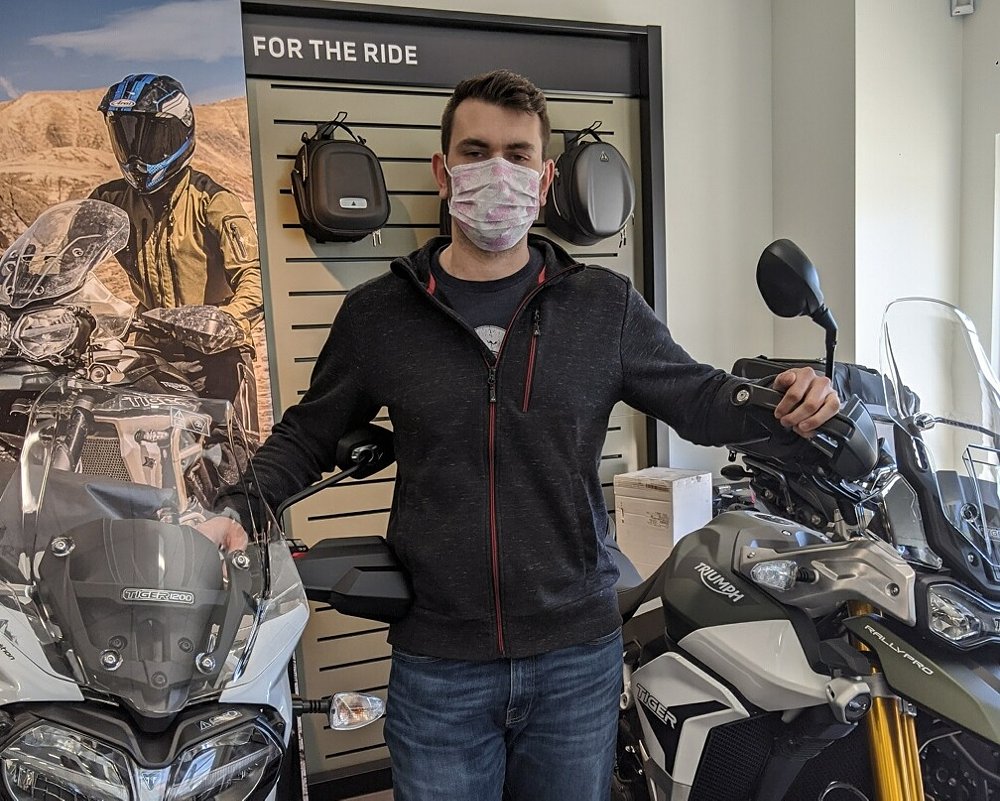
Metuchen, New Jersey
In Riverside or Kansas City, it’s still easy to think of the pandemic as something that’s happening elsewhere. That’s definitely not the case at Cross Country Powersports, which is only about 20 miles from New York City.
“It took a while for people to take it seriously, but at this point it seems everyone knows someone who has it, or has had it, or has passed away from it,” said Cross Country General Manager Chris Notte. “Legally, our service department can stay open, but our showroom must remain closed to the public. We can sell motorcycles and parts, but they all have to be curbside pickup or delivered to the customer’s house.”
Much of the financing paperwork is done online, or contracts can be sent by courier to customers. If a customer does have to come in to complete a transaction, it can be done in 15 minutes or less and everyone wears a mask. Motorcycles can be delivered to the buyer's home.
Notte said motorcycle sales at Cross Country were probably down 20 percent compared to April of last year.
Meanwhile, the service department is busy and revenue was ahead of plan for both March and April. “We have two trucks that are working full-time,” Notte said. “BMW is also helping its dealers out, by letting us use BMW roadside assistance to pick up and deliver bikes that just need routine service.”
Cross Country’s parts department is busy, but it’s small stuff, like service-oriented parts, not big-ticket "upsell" items like exhausts, so sales volumes are down about 30 percent.
“We’re here to support our customers, and a lot of them are like family,” Notte told me. “Maybe when this is over, it will have brought out the best in us.”
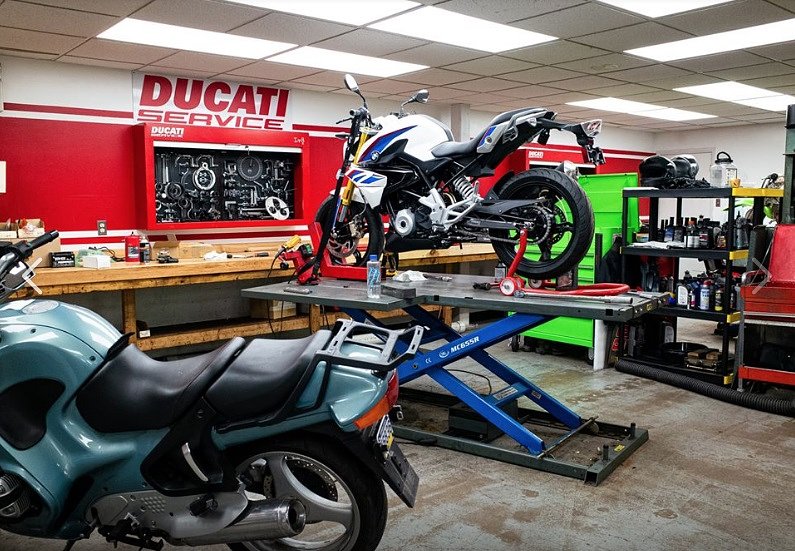
Montgomeryville, Pennsylvania
Of all the people I spoke to, Bob Jones, who operates Montgomeryville Cycle Center, may be the person who is best able to put this recession into context. At 64, he’s been in the shop for 43 years.
“We’re way down,” he told me. “I haven’t looked at percentages yet, but I’d guess we’re at 60 percent.”
That’s not bad, considering that Montgomery County, north of Philadelphia, shows up on the Johns Hopkins coronavirus tracking map in dark purple — the color of a bad bruise — which means that it’s a hot spot for COVID-19.

“We’ve been social distancing since jump street,” Jones told me. “We’ve been able to sell parts curbside and we’re doing service, but it’s by appointment only. They run the bikes around back and they detox them, then they work on them. When they’re done, we detox them again and put them out front with the keys in them and the customer drives them away. There’s very little contact. It’s weird for the motorcycle business. Everything’s usually very personal.”
“As of Friday morning, we’ve been able to sell remotely, on the web," Jones said. "We’ve sold a couple of little dirt bikes, which is easy. You just put them out front and the customer takes them away. Tomorrow, we’ll sell our first street bike. It’s hard. You’ve got to verify who they are. You need two forms of ID, we’re snapping pictures through the glass,” Jones said. “It’s just really weird."
Jones said that in 2007 the Cycle Center did $33 million in gross revenues. In the depths of the Great Recession, that dropped to $6 million.
“We survived that, but we’d got low on money twice before,” he recalled. “We’d learned that you keep your store well within your means, and you live well within your means, and you’ll be fine. If you get out on a limb and somebody saws it off, you’re screwed.”
“The difference between this and 2008 is everybody knows someone who’s got it. Everybody’s a little bit scared. We don’t have the news on in my shop, period. We have music playing. Nobody’s touching each other, which is weird. It’s a shop. Usually, everybody’s slapping each other and carrying on.”
“We’re going to get through it, one day at a time,” Bob said as we were winding up our conversation. But he added, “My biggest fear is that they’re going to open us up too quickly and then we’re all going to have round two, which is going to be a problem.”




